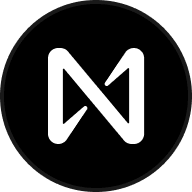
DAI price

DAI market info
Market cap = Circulating supply × Last price

DAI calculator


DAI price performance in USD
Popular DAI conversions
| 1 DAI to USD | $1.0007 |
| 1 DAI to PHP | ₱57.3161 |
| 1 DAI to EUR | €0.91834 |
| 1 DAI to IDR | Rp 16,362.00 |
| 1 DAI to GBP | £0.77342 |
| 1 DAI to CAD | $1.4430 |
| 1 DAI to AED | AED 3.6752 |
| 1 DAI to VND | ₫25,534.58 |
About DAI (DAI)
- Official website
- White Paper
- Block explorer
DAI FAQ
DAI is a stablecoin created through the Maker Protocol, a decentralized finance (DeFi) platform built on the Ethereum blockchain. DAI is generated by users who deposit collateral, such as Ether, into Maker Vaults and then mint DAI against that collateral. The Maker Protocol uses a system of smart contracts to ensure that the value of the collateral consistently exceeds the value of the DAI created, which helps to maintain the stability of the DAI token.
DAI holders can store their tokens in various cryptocurrency wallets, including hardware and software wallets. However, it is essential to choose a wallet that offers strong protection against potential hacks or theft.
We provide a multi-chain OKX Web3 Wallet with all OKX accounts that allows you to fully self-custody your tokens. You can store DAI or any other cryptocurrency for as long as needed. In addition, the OKX Web3 Wallet offers inbuilt access to hundreds of decentralized applications (DApps) and the OKX NFT Marketplace.
The Maker Protocol is a DeFi platform that powers the creation of the DAI stablecoin. The Protocol uses a system of smart contracts to allow users to deposit collateral into Maker Vaults and mint DAI against that collateral.
The Maker Protocol also includes the MakerDAO governance system, which allows users to vote on changes to the platform, such as adjustments to the stability fee or collateralization ratio. The Maker Protocol is designed to be decentralized and transparent, with no central authority controlling the creation or management of DAI.
DAI ensures liquidity for its users through several mechanisms. First, because DAI is a stablecoin with a value pegged to the US dollar, it can be easily exchanged for other cryptocurrencies or fiat currencies.
Additionally, DAI is listed on several cryptocurrency exchanges, including OKX, which provides users access to liquidity in various markets. Finally, the Maker Protocol includes a system of auctions that can be used to buy and sell DAI in the event of extreme market volatility, which helps maintain the token's stability and ensure that users can always access liquidity when they need it.
Unlike other stablecoins backed by fiat currency or commodities, DAI is backed by CDPs on the Ethereum blockchain. This means that DAI's stability is not tied to any centralized authority or external asset, making it a more decentralized and transparent stablecoin option.
Additionally, because the value of DAI is not tied to any specific asset, it can be used in a broader range of applications. As a result, it can be more easily integrated into DeFi ecosystems.
The DAI ecosystem incentivizes stability through a system of penalties and rewards. If the value of DAI falls below its $1 peg, users who hold DAI can vote to increase the stability fee, which increases the cost of creating new DAI and incentivizes users to hold or buy DAI until the price stabilizes. Conversely, if the value of DAI rises above its $1 peg, the stability fee is lowered, incentivizing users to sell DAI and bringing the price back down.
The stability fee is a fee paid by users who generate new DAI through collateralized debt positions (CDPs). The fee incentivizes users to hold or buy DAI when its value falls below the $1 peg.
Suppose the value of DAI falls below $1. In that case, the stability fee is raised, which increases the cost of generating new DAI and incentivizes users to hold or buy existing DAI until the price stabilizes. Conversely, if the value of DAI rises above $1, the stability fee is lowered, incentivizing users to sell DAI and bringing the price back down.
MKR is the native cryptocurrency of the MakerDAO platform, which powers the DAI stablecoin. MKR is used to govern the MakerDAO platform and to vote on changes to the system, such as changes to the stability fee.
Additionally, when users generate new DAI through collateralized debt positions (CDPs), they must pay a small amount of MKR as a transaction fee. The MKR collected from these transaction fees is burned, which reduces the total supply of MKR over time.
The DAI savings rate is an annualized interest rate paid to users who hold DAI in a designated savings account. The DAI savings rate is calculated based on the stability fee, the interest rate charged on collateral deposited in Maker Vaults.
When the stability fee is higher than the DAI savings rate, users are incentivized to hold DAI in the savings account and earn interest rather than using it to generate more DAI. The DAI savings rate can vary over time based on changes to the stability fee and demand for DAI. Holding DAI in the savings account can be a helpful strategy for users who want to earn a return on their assets without exposing themselves to excessive risk.
DAI is built on the Ethereum blockchain, known for its robust security features. Additionally, because DAI operates in a decentralized manner, it is not subject to the same risks as traditional fiat currencies.
However, as with any crypto asset, including stablecoins and cryptos like Bitcoin (BTC) or XRP (XRP), there are risks associated with using DAI, such as the risk of price changes and volatility, the risk of losing access to your funds if you lose your private keys, and the risk of smart contract bugs.
While the all-time high and all-time low for DAI can provide helpful context for traders, they should not be used as the basis for making purchasing decisions.The price of DAI, like any asset, is influenced by various factors, including market conditions, demand for the token, and overall sentiment toward the DeFi ecosystem. Therefore, it's essential to do your own research, stay informed about market trends, and consider all factors before buying DAI.
The max supply of DAI is not fixed but is instead determined by the demand for the token and the amount of collateral held in Maker Vaults. As more collateral is deposited into Maker Vaults, more DAI can be generated, increasing the token supply.
Conversely, if the value of the collateral falls or demand for DAI decreases, the token supply can be reduced. This flexible supply mechanism helps to ensure that the value of DAI remains stable and that the token can be easily exchanged for other assets.
The future of DAI looks promising. As the cryptocurrency market continues to mature, stablecoins like DAI are becoming more widely adopted to avoid the volatility associated with other digital currencies.
Additionally, as the Ethereum ecosystem grows, more decentralized applications are being built on top of the platform, likely increasing the demand for DAI. Finally, the development team behind DAI is constantly working to improve the system's stability and add new features, which should help drive adoption in the future.
Monitor crypto prices on an exchange
DAI calculator





























Socials